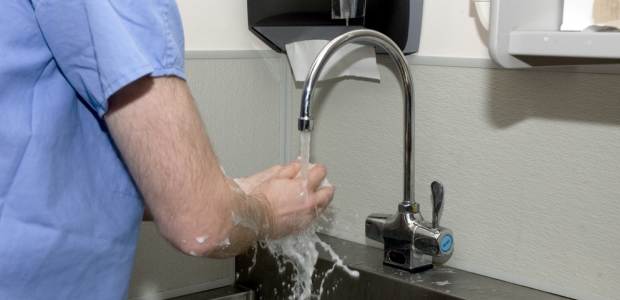
'Simple' Strategies Cut VA MRSA Infection Rates
A national campaign started in 133 VA long-term care facilities four years ago reduced them by 36 percent, according to a study published in the American Journal of Infection Control.
A national initiative started in 2009 at 133 Veterans Affairs long-term care facilities managed to reduce the number of methicillin-resistant Staphylococcus aureus (MRSA) rates in those facilities by 36 percent, according to a study published in the January 2014 issue of the American Journal of Infection Control, which is the official publication of the Association for Professionals in Infection Control and Epidemiology
APIC reported that the MRSA Prevention Initiative reduced MRSA infections from .25 to .16 per 1,000 resident days even though admissions with MRSA colonization increased.
Its news release about the study reports that the initiative uses a bundled approach, one that includes screening every patient for MRSA, using gowns and gloves when caring for patients colonized or infected with MRSA, hand hygiene, and an institutional culture change that focused on individual responsibility for infection control. It also created a new position -- MRSA Prevention Coordinator -- at each facility.
This initiative already had been shown to work well in acute-care hospitals, according to APIC.
"We previously reported that a MRSA Prevention Initiative was associated with significant decreases in MRSA HAIs in acute care facilities over a 33-month period in a large healthcare system. Here we show that the initiative was also associated with decreased rates of MRSA HAIs in VA community living centers (CLCs) without a corresponding decrease in MRSA admission prevalence," the authors wrote. "To our knowledge, declines in MRSA HAIs such as this have not been reported in other large long-term care settings. Our experience suggests that adherence to a simple bundle of infection prevention and control strategies may be of value in controlling MRSA HAIs in CLCs, especially if the program is implemented widely throughout the network of healthcare venues in which an individual may seek care."